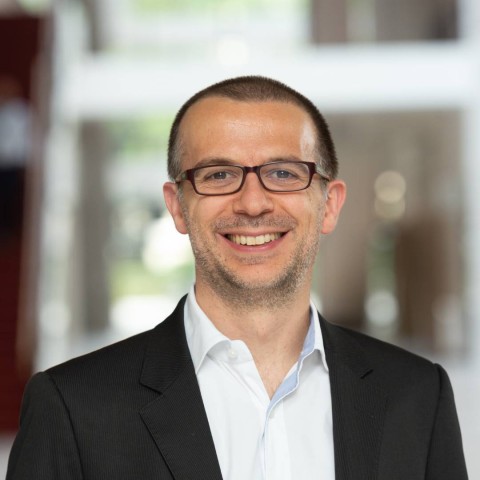MCAA from the Cradle - MCAA Magazine March 2024
Celebrating the first decade of our Association, we invited members from all five MCAA Boards to share their insights. Marco Masia, from the 2016-18 MCAA Board, glances at the future of the MCAA by looking back at its growth and impact of over nine years, focusing both on the benefits for members and on the relevance of the association for the research and innovation policy at European Union level.
Nine years ago, my journey with the MCAA General Assembly began in Porto, Portugal. As the founding vice-chair of the German Chapter and a member of the Policy Working Group, I was part of a dynamic group of nearly 60 researchers. Our enthusiasm was palpable, united by a common goal of transcending traditional academic boundaries. Most of the energy in the meeting came from being aware of the opportunity we had to develop ourselves outside of the typical academic path. We did not discuss much science back then. Our focus was rather on how we could contribute to building a potentially large organisation, how we could leverage our close contact with the Directorate-General for Education and Culture. Our aim was to ensure the voice of researchers would be heard by policymakers, and to open up additional career paths for our members.
Starting small, thinking big
In those early days, despite the challenges posed by red tape within the initial contract with the European Commission, most of the people present in Porto channelled their enthusiasm and energy into building up the association. My role in the Policy Working Group was my first foray into leadership as the chair, and a role I later expanded as vice-chair of the Board. I also contributed to different Working Groups and National Chapters. By covering all these roles, I could witness how the community grew from a few hundred to more than twenty thousand members and how people contributed to the organisation at different levels. I could also experience how difficult it was to motivate people and to get anything done that was meaningful. One of the most valuable aspects of my involvement with the MCAA has been the relationships formed with colleagues across Europe. Many of these colleagues have become close friends, and despite the distances that separate us, our reunions are always a highlight. I will always be thankful to the MCAA just only for this.

The value of the MCAA
Reflecting on the last nine years, I recognize that the significant value of actively contributing to MCAA governance and activities is found in the following aspects:
• Personal development: active members develop a set of soft skills that open up unexpected opportunities.
• Networking: making contact and working with people within and outside the MCAA allows active members to grow a unique global network of professionals.
• Career development: active members gain work-like experience in different fields of their interest. This allows them to identify potential career opportunities and make important career choices while learning the job by doing. I have witnessed many brilliant members who have made a career in academia. Many have also been successful outside by gaining prominent positions in policy, communication, and entrepreneurship.
In the next 10 years, the MCAA will establish itself as a key organisation of researchers.

What about non-active members? They benefit a lot from the activities organised, from the annual conferences to the smaller local initiatives carried out by National Chapters and Working Groups. The contents and networking opportunities provided help them broaden their perspective on research and innovation.
In addition to the “micro-impact” on individual members, I think that the MCAA has had an impact at the macro-level by bringing the voice of young researchers in many fora and discussions around the structure of the research and innovation in Europe.
Future prospects
As we look to the future, I have witnessed the growth of the MCAA’s trajectory from a small group of enthusiastic people to a large organisation with a much higher degree of complexity. I can only imagine the current challenges for its governance and for maintaining the enthusiasm of active members. Fortunately, the new contract with the European Commission is far more flexible than before, enabling the Association to evolve under the guidance of the Board and the Executive Director. During the annual conferences, I always notice the inflow of new members eager to get involved. I anticipate that, in the next 10 years, the MCAA will establish itself as a key organisation of researchers, positively impacting the European research and innovation landscape.
Marco Masia
Head of Entrepreneurship University of Vienna, Austria
marco.masia@univie.ac.at
ORCID 0000-0003-2257-3101
LinkedIn mmasia